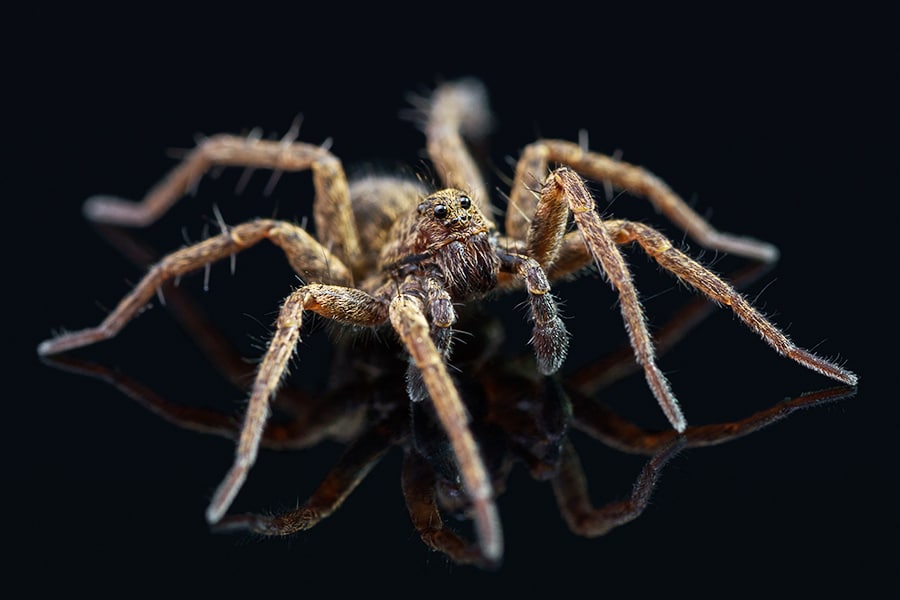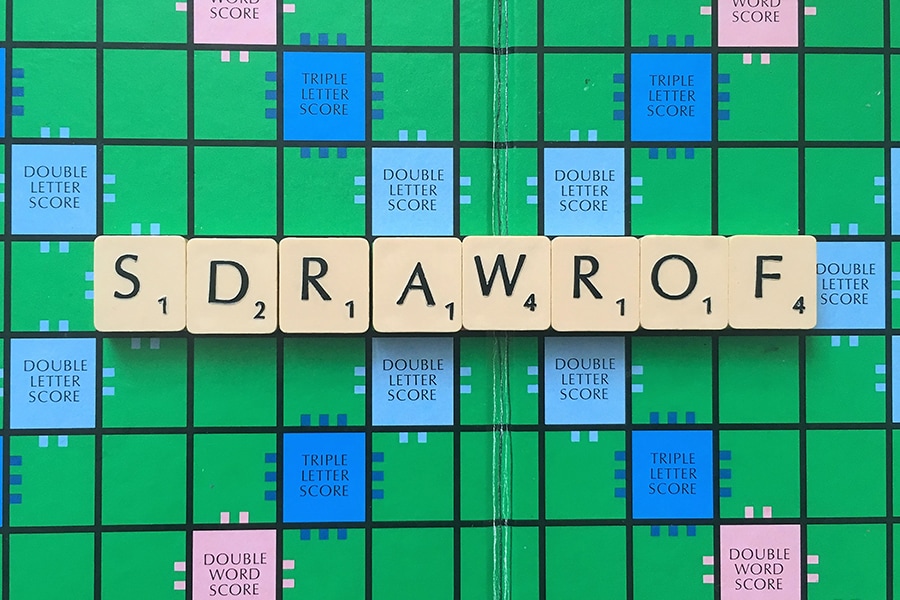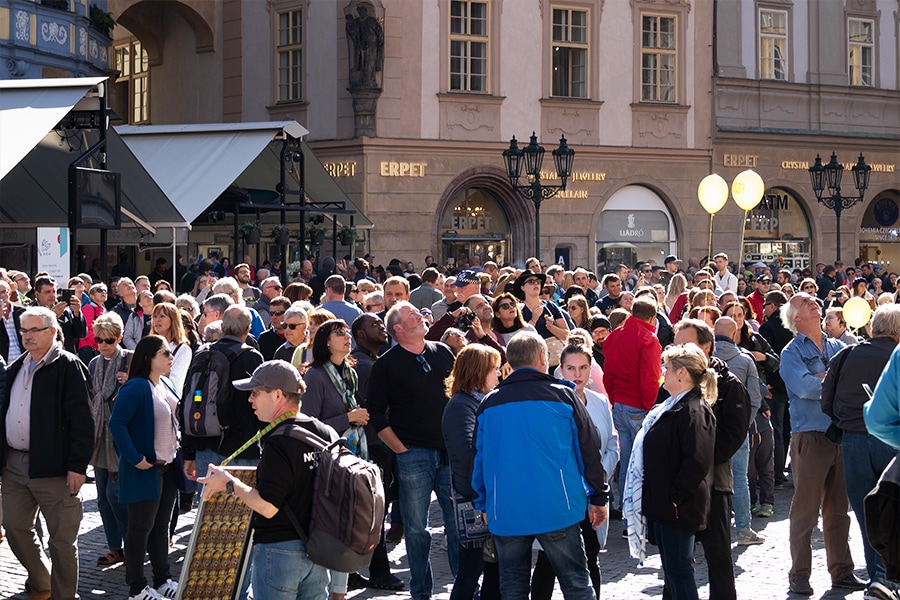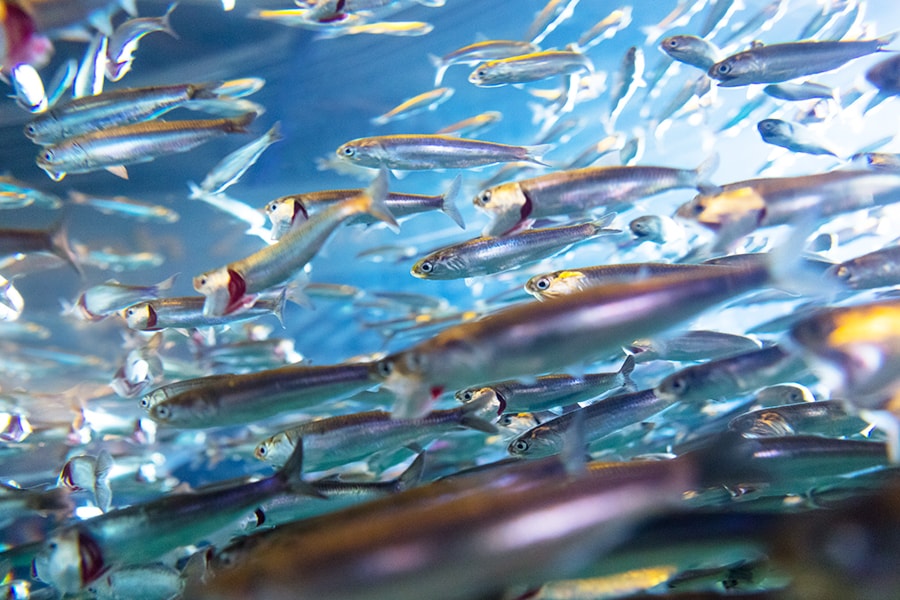The rock lying by the roadside did not look like much of interest at first: a rather nondescript limestone, with little more to show to casual observation than a few vague blotches. Anyway, old habits die hard, so I picked it up and licked the surface.… The memory of the shock and the thrill of minor discovery is still fresh. The little blotches turned out to be the most superb three-dimensionally preserved Nummulites foraminifera that one could hope to see, set in a marvellously revealing natural cement of sparitic calcite. Part of the sample still graces my desk, while the rest has been sacrificed for microscope-thin sections for students. Such treasures should not be withheld from the younger generation.
Jamais vu is a phenomenon operationalised as the opposite of déjà vu, i.e. finding subjectively unfamiliar something that we know to be familiar. We sought to document that the subjective experience of jamais vu can be produced in word alienation tasks…. “Repeat aloud some word – the first that occurs to you house, for instance – over and over again presently the sound of the word becomes meaningless and blank you are puzzled and a morsel frightened as you hear it" This phenomenon is understood to be the loss or reduction in the meaning of a stimulus word following “a overt verbal repetition, prolonged visual inspection or repeated writing of the stimulus word"
![]() Image: Shutterstock
Image: Shutterstock
MECHANICAL ENGINEERING PRIZE [INDIA, CHINA, MALAYSIA, USA]
Te Faye Yap, Zhen Liu, Anoop Rajappan, Trevor Shimokusu, and Daniel Preston, for re-animating dead spiders to use as mechanical gripping tools.
In this work, we employ the intact body of an inanimate biological creature (a dead spider) as a ready-to-use biotic actuator in the first step toward an area of research we call “necrobotics." We repurposed the cadaver of a spider to create a pneumatically actuated gripper that is fully functional following only one simple assembly step, allowing us to circumvent the usual tedious and constraining fabrication steps required for fluidically driven actuators and grippers. Our ready-to-use pneumatically actuated necrobotic gripper is able to lift an object 1.3 times its own weight, exerts a peak gripping force of 0.35 mN, and can withstand 700 actuation cycles /before the onset of degradation.
![]() Image: Shutterstock
Image: Shutterstock
PUBLIC HEALTH PRIZE [SOUTH KOREA, USA]
Seung-min Park, for inventing the Stanford Toilet, a device that uses a variety of technologies — including a urinalysis dipstick test strip, a computer vision system for defecation analysis, an anal-print sensor paired with an identification camera, and a telecommunications link — to monitor and quickly analyse the substances that humans excrete.
The microbiota–gut–brain axis is one of the most compelling recent developments in precision medicine and it has been implicated in an increasing number of conditions including motility disturbances and visceral hypersensitivity in functional gastrointestinal disorders, alterations in mucosal and immune function in inflammatory bowel disease, and alterations in the enteric nervous system in neuropsychiatric diseases such as anxiety, schizophrenia and Alzheimer’s disease. Although it is an emerging field, it is evident that understanding its high inter-individual variation will benefit from digitised, individualised and longitudinal monitoring of human excreta.
![]() Image: Shutterstock
Image: Shutterstock
COMMUNICATION PRIZE [ARGENTINA, SPAIN, COLOMBIA, CHILE, CHINA, USA]
Maràa José Torres-Prioris, Diana Là³pez-Barroso, Estela Cà mara, Sol Fittipaldi, Lucas Sedeà±o, Agustàn Ibà¡à±ez, Marcelo Berthier, and Adolfo Garcàa, for studying the mental activities of people who are expert at speaking backwards.
When visiting the local barber shop, a native of La Laguna in Spain may be surprised by the speech of some fellow citizens. He might be greeted with the utterance ‘nasbue chesno’ and fail to understand it at all. With time, however, he may realise that the phrase was a backward rendition of buenas noches (good evening) and that this peculiar way of speaking is quite widespread in this town. So much so, in fact, that a group of citizens have demanded that UNESCO acknowledge their linguistic extravaganza as intangible cultural heritage.
![]() Image: Shutterstock
Image: Shutterstock
MEDICINE PRIZE [USA, CANADA, MACEDONIA, IRAN, VIETNAM]
Christine Pham, Bobak Hedayati, Kiana Hashemi, Ella Csuka, Tiana Mamaghani, Margit Juhasz, Jamie Wikenheiser, and Natasha Mesinkovska, for using cadavers to explore whether there is an equal number of hairs in each of a person’s two nostrils.
Alopecia areata is an inflammatory condition associated with hair loss of the scalp, eyelashes, eyebrows, and nostrils. Many alopecia patients have experienced increased allergies, upper respiratory infections, and dryness due to the lack of nose hairs. Our intention to describe human nose hair growth patterns may seem unusual, but it originated from a need to better understand the role they play as front line guardians of the respiratory system… we used a measuring tape to check the length as well as individually count the number of hairs in each of the twenty cadavers from a medical school in Southern California …and found that the average number of nose hairs was 120 in the left and 122 in the right
![]() Image: Shutterstock
Image: Shutterstock
NUTRITION PRIZE [JAPAN]
Homei Miyashita and Hiromi Nakamura, for experiments to determine how electrified chopsticks and drinking straws can change the taste of food.
In this paper, we propose a method to augment gustation and increase the number of perceptible tastes. Electric taste is the sensation elicited upon stimulating the tongue with electric current. We used this phenomenon to convey information that humans cannot perceive with their tongue. Our method involves changing the taste of foods and drinks by using electric taste. First, we propose a system to drink beverages using straws that are connected to an electric circuit. Second, we propose a system to eat foods using a fork or chopsticks connected to an electric circuit. Finally, we discuss augmented gustation using various sensors.
![]() Image: Shutterstock
Image: Shutterstock
EDUCATION PRIZE
[HONG KONG, CHINA, CANADA, UK, THE NETHERLANDS, IRELAND, USA, JAPAN]
Katy Tam, Cyanea Poon, Victoria Hui, Wijnand van Tilburg, Christy Wong, Vivian Kwong, Gigi Yuen, and Christian Chan, for methodically studying the boredom of teachers and students.
Given that students often make estimates of how boring lectures are, does anticipating a lecture to be boring shape their actual experience of boredom? Study 1 (121 students) and study 2 (130 students) were conducted in natural university lecture environments. We found that students who anticipated a lecture to bore them more subsequently felt more bored by it. In study 3 (92 students), we experimentally manipulated anticipated boredom before participants watched a lecture video. We found that those who were led to anticipate higher levels of boredom felt more bored by the video. Results converged to indicate that the mere expectation that a lecture will be boring may be sufficient to exacerbate its subsequent occurrence. We discuss these findings in the contexts of affective forecasting and education.
![]() Image: Shutterstock
Image: Shutterstock
PSYCHOLOGY PRIZE [USA]
Stanley Milgram, Leonard Bickman, and Lawrence Berkowitz for experiments on a city street to see how many passersby stop to look upward when they see strangers looking upward
Reports on the relationship between the size of a stimulus crowd, standing on a busy city street looking up at a building, and the response of passersby. As the size of the stimulus crowd was increased a greater proportion of passersby adopted the behavior of the crowd. The study involved 1424 pedestrians. The results suggest a modification of the JS Coleman and J James model of the size of free-forming groups to include a contagion assumption.
![]() Image: Shutterstock
Image: Shutterstock
PHYSICS PRIZE [SPAIN, GALICIA, SWITZERLAND, FRANCE, UK]
Bieito Fernà¡ndez Castro, Marian Peà±a, Enrique Nogueira, Miguel Gilcoto, Esperanza Broullà³n, Antonio Comesaà±a, Damien Bouffard, Alberto C. Naveira Garabato, and Beatriz Mourià±o-Carballido, for measuring the extent to which ocean-water mixing is affected by the sexual activity of anchovies.
By analysing 14 days of continuous measurements of centimetre-scale turbulence in an area of coastal upwelling, we show that turbulent dissipation is elevated 10- to 100-fold every night of the survey due to the swimming activity of large aggregations of anchovies that gather regularly over the spawning season. Turbulent mixing is invigorated concurrently with dissipation, and occurs with an efficiency comparable to that of geophysical turbulence. Our results demonstrate that biologically driven turbulence can be a highly effective mixing agent, and call for a re-examination of its impacts on productive upper ocean regions.









